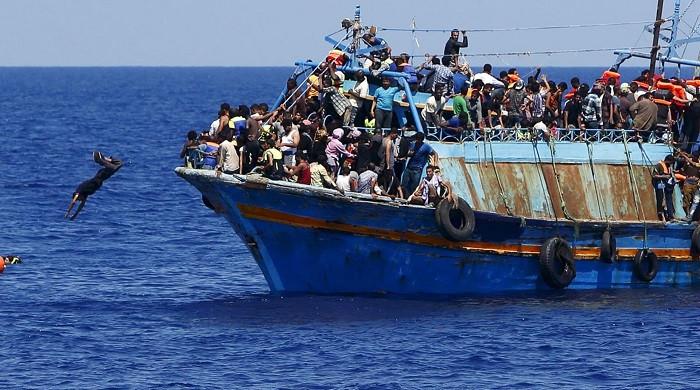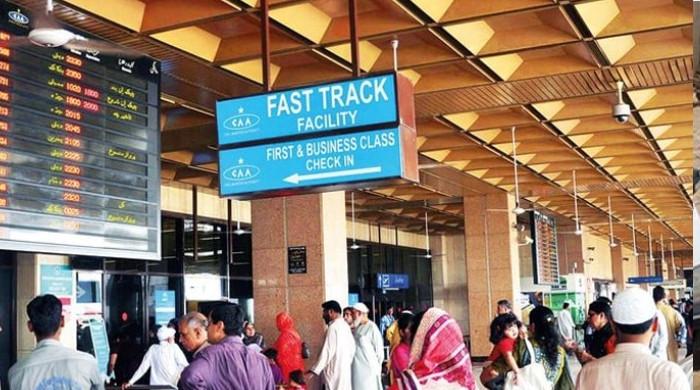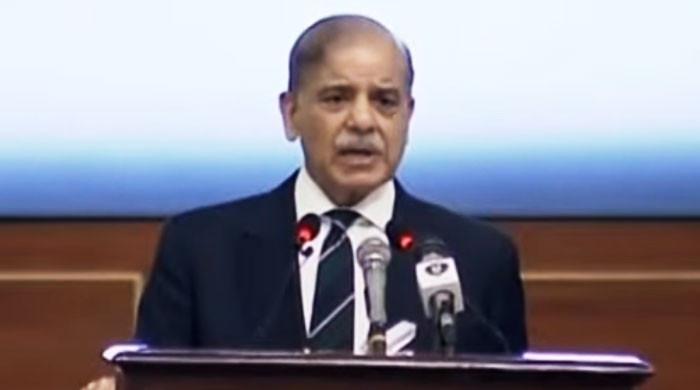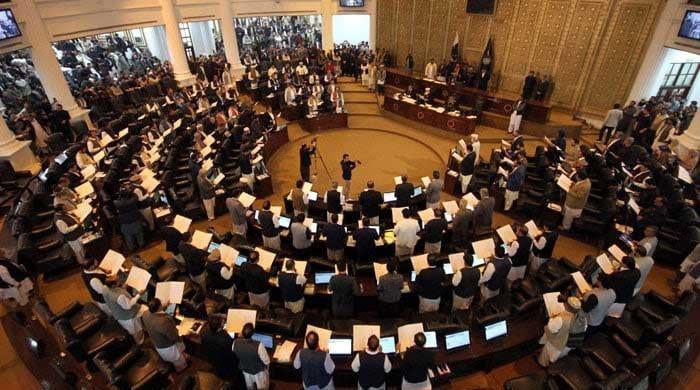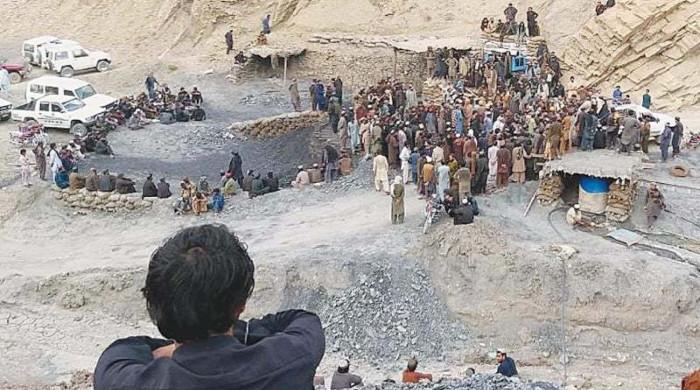Second, third tier Baloch militants surrendered or killed
ISLAMABAD: The Balochistan government has claimed to have either eliminated or coerced into surrender the second and third tier leadership of rebel organisations and is now focusing on...
August 29, 2016
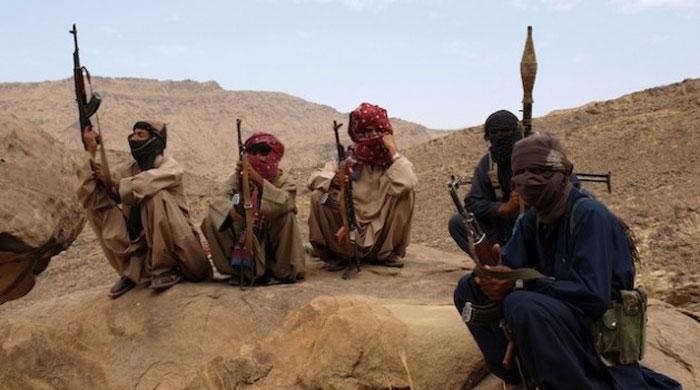
ISLAMABAD: The Balochistan government has claimed to have either eliminated or coerced into surrender the second and third tier leadership of rebel organisations and is now focusing on disassociating their exiled top leaders from the outfit cadres on the ground.
Official claims come at a time when there is an increase in violence across the province in recent months after two years of a fragile calm.
Over 600 rebels were killed in 1234 combing operations jointly conducted by the law-enforcement agencies in last 13 months, reveal official figures accessed by Geo News (ASKKS Programme).
Over 15 key commanders of banned outfits were also killed in recent operations started by the Frontier Corps, Levies and counter-terrorism forces with the help of information collected through the Intelligence Fusion Cell (IFC) in the province.
Over 1025 separatists have also surrendered under the government’s efforts to bring Baloch dissidents into the national mainstream by engaging all stakeholders to execute peace programmes announced by Prime Minister Nawaz Sharif last year.
“Our policy offering them a carrot and using a stick is bearing fruits now,” said Balochistan government spokesperson Anwar-ul-Haq Kakar. It’s a positive and productive development — the policy of reconciliation to bring rebels into national mainstream will be continued, Kakar told Geo News.
Baloch Separatists, Rebels surrender
Official data revealed that the top commander of banned Baloch Liberation Army (BLA) Aslam Achou alias Merick Baloch was killed with his eight ring leaders in Sibbi four months ago. Some 87 activists of BLA also surrendered under the peace programme earlier this year. Before entering into national mainstream they were targeting public installations, law-enforcement agencies, foreigners and government servants in Noshki, Quetta, Dera Bugti and Kohlu.
FC personnel killed chief operational leader of banned Baloch Liberation Front (BLF) Dr Manan with his accomplices in Awaran eight months ago. Around 112 separatists working for the BLF joined the national mainstream recently. Before laying arms they were targeting mega projects, exploration work, settlers and foreigners in Kachh, Gawadar, Awaran and Turbat.
Law-enforcement agencies killed key leader of Baloch Republican Army (BLA) Cheela Reesh in Sui in March this year after around 114 activists of BLA surrendered in Jafferabad, Naseerabad, Bolan, Dera Bugti and Sibbi. They were targeting police, security forces and government installations.
Over 67 militants who worked with the banned Baloch Liberation United Front, an offshoot of Bugti tribes, also surrendered under the peace programme last year. Before laying down arms they had targeted prominent personalities, Shafiq Khan, provincial minister; and John Soleiki, chief of American UNHCR sub-office in Balochistan in particular.
A key leader Abdul Nabi Bangulzai of United Baloch Army (UBA) was killed in Qallat in April while another key commander of UBA Wali Mohammad alias Haji Katali laid down the arms. They had targeted law-enforcement agencies in Quetta. Police in a joint operation also killed Kingpin of Lashkar-e-Jhangvi (LeJ), Usman Saifullah Kurd last year.
Government fails to keep up promises
LeJ activists under Mr. Kurd’s command were targeting Hazaras in Mastung, Bolan and Quetta. Over 65 separatists of Lashkar-i-Balochistan also surrendered this year. Before entering into mainstream, they were targeting government servants in Khuzdar and its adjacent areas.
Informed officials also informed Geo News that around 400 separatists, who promised to lay down their arms five months back refused to surrender after the provincial government could not fulfill its promise of settling those who surrendered under “Pur Aman Balochistan Programme”—an amnesty for all rebel announced on August 14, 2015.
“Pur Aman Balochistan Programme witnessed a slow progress. The provincial authorities never pursued dialogue process seriously,” said MPA Mir Abdul Karim Nousherwani, who convinced many commanders of BLA to surrender in Kharan. The present provincial authorities brought this peace process to standstill after Lt. General (retd) Nasser Janjua and the then Chief Minister Dr. Abdul Malik Baloch left their respective offices, he recalled.
“Separatists stopped surrendering since civilian government did not meet promises—we have lost belief in politicians—we only believe in Army,” said Sardar Nizamuddin, who was a top commander of BLA in Kharran before surrendering arms on August 14, 2015.
Both federal and provincial governments jointly announced Rs5 billion for those who have surrendered. Provincial government released only Rs 430 million but federal governments did not release a “single penny” for this policy, revealed official documents exclusively obtained by Geo News.
Officials assigned to hold monthly meetings of provincial steering committee; provincial support committee, divisional monitoring committee and district implementation committee could not meet up to pursue this peace policy after February this year.
Officials assigned to pursue this programme could not execute an initial plan of hosting 580 separatists by establishing rehabilitation centers in 12 districts of the province, revealed the documents. Government planned to rehabilitate 21 separatists in Ayub Stadium, Quetta, 54 in Gwadar IT Hostel, 39 in BC Complex Kech Town, 51 in Govt Elementary College Panjgoor, 56 in RTC Police Line Kalat, 56 in Social welfare Center Awaran, 64 in TC Center Sibi, 32 in Government High School Tunia, Lehri, 32 in Levies Thana Dera Bugti, 114 in Levies Thana Phelwah, 44 in Kohlu Veterinary Hospital, 44 in Loralai and 19 in Naseer Abad Irrigation Rest House but no one reported it yet.
Not a single meeting on how to convince separatists to surrender could be held in Quetta, Gwadar, Awaran, Lehri and Naseerabad so far. However brief meetings were held each in Panjgoor, Sibi and Kohlu last year.
Government of Balochistan promised for adjustment of some 700 separatists through civilian forces and welfare institutions, documents continued to reveal. Directorate of Levies force Balochistan has to adjust 200 separatists, 100 each by Balochistan police force, department of labour and manpower, department of sports and culture, department of social welfare and youth affairs and department of education. But no separatists reported in these centers yet.
Around 1025 separatists, who surrendered so far, have just got 20 percent promised incentives. The government paid them Rs 25000 to Rs 50000 each as an incentive so far. Government as a financial incentive for surrendering separatists announced Rs 0.5 million for a separatist who surrenders, Rs 1 million for separatist commander and Rs 1.5 million for a top militant leader, official documents further revealed.
On this burning security situation in Balochistan, Lt. General (retd) Nasser Janjua did not comment. This correspondent personally met him to get update on his initiative—Pur Aman Balochistan Programme—but he parried the questions.
Senator Rubina Irfan said all stakeholders should take up peace process as agenda number one and be asked what their real grievances are? “A ‘Naraz Baloch’ does not believe in civilian government. Dissidents only believe in military—it could bring them into national mainstream—it can I believe and it is possible,” she said.




